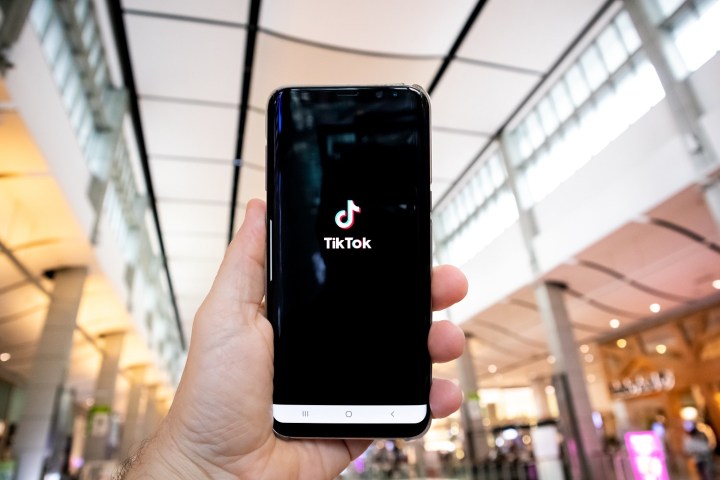Lots of people keep up with the important news of the day using social media, but if you’re using TikTok to learn about current events, you may want to be more careful with the app’s search results. Research from a new report has found that quite a few of the videos featured in those results contained misinformation.
According to The Associated Press, a new research report published Wednesday found that nearly 20% of TikTok search results for searches about news topics (conducted by the report’s researchers), had misinformation in them.

The report itself was published by NewsGuard, a company that keeps track of misinformation online and rates the trustworthiness of news sites, and is known for its browser extension of the same name.
The research referenced in the report was performed by four NewsGuard analysts in the U.S. who conducted 27 searches in TikTok on various news topics like abortion, climate change, COVID-19, the 2020 election, and Ukraine.
The searches were also conducted on re-installations of the TikTok app and via a new account for each search in order to “ensure that results were not curated to be affected by users’ previous activity.” The research also involved comparisons between TikTok’s search results and Google’s search results.
TikTok’s community guidelines forbid “harmful misinformation.”
According to NewsGuard’s report, the “almost 20%” of videos in search results finding breaks down like this: NewsGuard reviewed 540 TikTok results (the top 20 results of 27 news topics searches). 105 videos (19.4%) in those results were then found to have “false or misleading claims.”
In addition to finding that nearly 20% of videos that appeared in search results for “prominent news topics” had misinformation, NewsGuard’s report also noted the following:
- NewsGuard noticed that certain “charged phrases” appear as suggested searches in the search bar when a more “neutral” phrase was entered as a search term. Example: Typing in “climate change” yielded suggested searches for “climate change debunked” and “climate change doesn’t exist.”
- Health misinformation appears to be another problem on TikTok. NewsGuard mentioned what happened when a search for “mRNA vaccine” was conducted: The search “yielded five videos containing false claims in the top 10 results — the second, fourth, fifth, sixth, and 10th.” In contrast, NewsGuard notes, Google’s search results for that same search offered up links to “articles explaining how mRNA vaccines work, from the websites of the U.S. Centers for Disease Control and Prevention and the Mayo Clinic, among others. None of the links advanced false or misleading COVID-19 claims.”
- Interestingly, NewsGuard also said that searching for the phrase “mugwort abortion” will not yield search results and instead the app shows a message stating that the search term is possibly associated with content that is in violation of its guidelines. But! NewsGuard also found that searching for “does mugwort induce abortion” does provide search results, of which 13 of the first 20 search results “advocate unproven herbal abortion methods, such as drinking mugwort tea, eating papaya seeds, and ingesting pennyroyal.”
And what is TikTok’s response to all of this? According to both The Associated Press and the NewsGuard report, TikTok did issue a statement in response to the report. In the statement, TikTok mentioned that its community guidelines forbid “harmful misinformation.” The company’s statement included the following quote:
[TikTok’s community guidelines] “make clear that we do not allow harmful misinformation, including medical misinformation, and we will remove it from the platform. We partner with credible voices to elevate authoritative content on topics related to public health, and partner with independent fact-checkers who help us to assess the accuracy of content.”
Editors' Recommendations
- TikTok sued by Utah over alleged child addiction harm
- Turns out DirectStorage isn’t killing frame rates in Forspoken after all
- TikTok is launching a dedicated gaming channel
- Is TikTok leaking drafts? Let’s take a closer look at this rumor
- TikTok pivots to photos while its competitors are still chasing its viral videos


